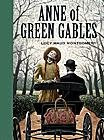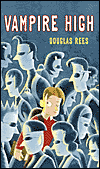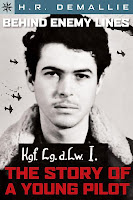Think I've finished the "R" authors, so it's on to "S"!
Pamela F. Service's
The Reluctant God alternates between the stories of Lorna, the daughter of an Egytologist, and Ameni, the son of a pharoah, who is chosen by the gods to preserve the tomb of his relatives. Through a quirk of time, the two meet up when Lorna uncovers the tomb, and when part of the artifacts Ameni is meant to guard are stolen, the two track them down and discover what is truly important to life. I liked this more than I thought I would, and students with an interest in ancient times and mysteries will like this as well, although it is a highly descriptive and philosophical work which will not appeal to those who want a quick read.
Service's
Phantom Victory also deals with some issues of time-- years ago, the Victory hotel burned to the ground. Brian and Terri both had relatives connected with the hotel, and the two of them use a diary to uncover clues to a lost treasure that could help the hotel be rebuilt. This was a solid mystery that should be popular with my students now that I know that it is on the shelf! It is cursed, however, with bad '90's cover art.
Not as bad as
Storm at the Edge of Time, however. (Also by Service.) Another time travel time, set in the Orkney Islands, it's a muddled tale that was hard to follow. Considering that it has only been checked out three times in 14 years, it may be a goner. My daughter wrinkled her nose when she saw it, and didn't unwrinkle it once she started reading.
Ian Serraillier's
Escape from Warsaw is a Holocaust tale, and one that has lots of adventure in it. Three Polish children are separated from their parents, who have been taken in different directions by the Nazis. The father meets a young boy, and tells him to look for the children. He eventually meets up with them, and the four make the long and difficult journey to Switzerland. Again, this was hidden in the "S" section, but will now circulate well because it is quite good.
Doris Buchanan Smith's
Karate Dancer must have something going for it, because one student checked it out about 9 different times over three years. Troy lives for karate and cartooning, even though his parents don't support his karate. He meets up with Liesl, a dancer, and has such a crush on her that he is willing to take up ballet in order to be with her. There are some bullies from another karate studio, a test for his black belt, and a rather odd scene where a ship hits a bridge in town and many people are killed. That was handled too quickly, and was just jarring. I liked this for Troy's emotions involving all that is going on around him, but there was enough action and description of the karate to interest students with experience in that area. On my pile to booktalk to SSR classes this week as well.
Gary D. Schmidt's
The Wednesday Wars is another introspective tale of a boy growing up during the Vietnam Conflict. When half the class goes to Catechism class on Wednesday afternoons, and the other half goes to temple, Holling Hoodhood, the lone Presbyterian, is stuck with Mrs. Baker. He is sure that she hates him, and Wednesday afternoons are filled with classroom chores until she decides to read Shakespeare with him. Misbehaving students, escaped rats, problems relevant to the Vietnam era (a refugee student, wives of soldiers, a sister who wants to be a "flower child"), and a local Shakespeare production all provide fodder for life lessons as well as comic situations.
I liked this, but mainly because it predates my school experience by just ten years, and it is very nostalgic. Definitely a bildungsroman, with all those life lessons. The humor seems forced (we hear about the yellow tights for the Shakespeare production a lot), and I don't know how students will like this one. I am going to think about it before I buy it.
The guilty pleasure of the weekend was Katie Maxwell's
Got Fangs. A weird but intriguing story of a girl working in a Goth Faire in Hungary with her mother, this would never be on the shelf because the girl's boyfriend is a vampire. And it's a mystery. Francesca's voice was fresh and amusing. I am looking into a bound version, since this is in paperback and the pages of the public library's version were already coming loose.
 L. M. Montgomery's Anne of Green Gables
L. M. Montgomery's Anne of Green Gables
 them if it compels them to make fudge, they have to bring me some. Set in the 1890's in Minnesota, I loved the depiction of family and school life at the time. Different from today's life, and yet oddly similar, I read these in high school, mainly in the orchestra pit when I was in musicals, and often did have to make fudge, because Betsy does so often. There is a series of these, and even a Lovelace fan club. Originally published in the 1950s, these can be hard to find.
them if it compels them to make fudge, they have to bring me some. Set in the 1890's in Minnesota, I loved the depiction of family and school life at the time. Different from today's life, and yet oddly similar, I read these in high school, mainly in the orchestra pit when I was in musicals, and often did have to make fudge, because Betsy does so often. There is a series of these, and even a Lovelace fan club. Originally published in the 1950s, these can be hard to find.



























 We know that Annie Sullivan had a difficult time teaching the deaf and blind Helen Keller to communicate, but how difficult was it, exactly? This excellent book fills us in on Annie's challenging and sad life before coming to the Keller's, which helps to explain her diligence and devotion. While Helen's actions are wild, this book shows that she was very intelligent, and just needed the opportunity to share that with others. The details of this process is something that the children will fins fascinating. This is a very complete book of Helen's early years; hopefully dedicated readers will go on to read Helen's autobiography or find out more about Annie Sullivan. Pictures, online sources, books and a chronology round out this very engaging biographical novel.
We know that Annie Sullivan had a difficult time teaching the deaf and blind Helen Keller to communicate, but how difficult was it, exactly? This excellent book fills us in on Annie's challenging and sad life before coming to the Keller's, which helps to explain her diligence and devotion. While Helen's actions are wild, this book shows that she was very intelligent, and just needed the opportunity to share that with others. The details of this process is something that the children will fins fascinating. This is a very complete book of Helen's early years; hopefully dedicated readers will go on to read Helen's autobiography or find out more about Annie Sullivan. Pictures, online sources, books and a chronology round out this very engaging biographical novel.




